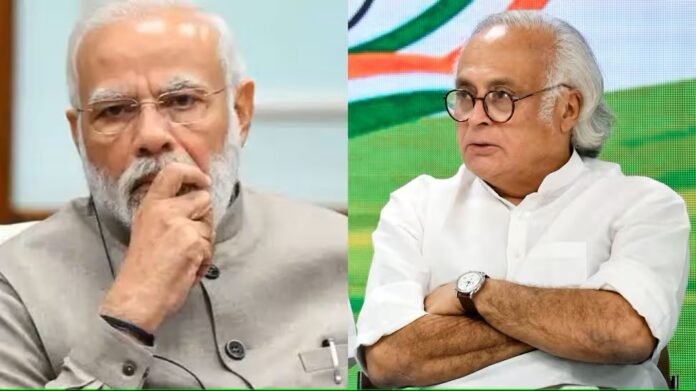In a recent interview, senior Congress leader Jairam Ramesh offered thought-provoking reflections on the prestigious Bharat Ratna award, invoking memories of two significant incidents involving veteran BJP leader L.K. Advani and Prime Minister Narendra Modi. Ramesh’s remarks provide valuable insights into the complexities of Indian politics and the nuanced relationships between leaders across party lines, shedding light on the evolving dynamics within the country’s political landscape.
The Bharat Ratna, India’s highest civilian honor, is bestowed upon individuals who have made exceptional contributions to the nation in various fields, including politics, arts, science, and social welfare. The selection process for the award is often a subject of intense debate and scrutiny, reflecting the diverse opinions and perspectives within Indian society.
Ramesh’s reflections on the Bharat Ratna resonate with the broader discourse surrounding the recognition of political leaders for their contributions to the nation. He recalled two incidents involving L.K. Advani, a stalwart of the Bharatiya Janata Party (BJP), and Prime Minister Narendra Modi, a towering figure in contemporary Indian politics, which offer valuable insights into the complexities of leadership and legacy in India.
The first incident that Ramesh recalled was related to the contentious debate within the BJP over the issue of conferring the Bharat Ratna on L.K. Advani, a veteran leader who played a pivotal role in shaping the party’s ideology and electoral strategy. Ramesh highlighted the internal divisions within the BJP regarding Advani’s legacy and the challenges faced by the party leadership in reconciling conflicting viewpoints on the matter.
The second incident that Ramesh referenced was centered around Prime Minister Narendra Modi’s response to a question about Advani’s candidature for the Bharat Ratna during an interview. Modi’s remarks, characterized by a sense of humility and respect for Advani’s contributions, struck a chord with Ramesh, underscoring the complexities of the relationship between the two leaders and their respective roles within the BJP.
Ramesh’s reflections on the Bharat Ratna and the incidents involving Advani and PM Modi offer valuable insights into the intricacies of Indian politics and the dynamics of leadership within the country’s political landscape. They highlight the complexities of recognizing and honoring political leaders for their contributions to the nation, as well as the challenges of navigating the often divergent perspectives and interests within political parties.
The remarks also underscore the importance of dialogue, consensus-building, and mutual respect in fostering constructive relationships between leaders across party lines. Despite ideological differences and political rivalries, there is a recognition of the shared commitment to serving the nation and upholding its democratic values, which transcends partisan divides and personal differences.
Moreover, Ramesh’s reflections on the Bharat Ratna and the incidents involving Advani and PM Modi serve as a reminder of the evolving nature of leadership and legacy in Indian politics. They highlight the need for leaders to adapt to changing circumstances, embrace inclusivity, and demonstrate humility and magnanimity in acknowledging the contributions of their peers and predecessors.
In addition, Jairam Ramesh’s insights on the Bharat Ratna and the incidents involving L.K. Advani and Prime Minister Narendra Modi offer valuable perspectives on the complexities of leadership and legacy in Indian politics. They underscore the importance of dialogue, consensus-building, and mutual respect in fostering constructive relationships between leaders across party lines. As India continues to navigate the challenges and opportunities of a rapidly evolving political landscape, Ramesh’s reflections serve as a timely reminder of the enduring values of democracy, dialogue, and inclusivity that underpin the nation’s democratic ethos.
Furthermore, Ramesh’s reflections shed light on the significance of acknowledging and honoring the contributions of leaders from diverse ideological backgrounds, emphasizing the need for a more inclusive and pluralistic approach to political discourse and decision-making. By recognizing the achievements and legacies of leaders like Advani, despite ideological differences, India can uphold the principles of democracy and promote greater unity and cohesion within its political landscape. Ramesh’s insights serve as a timely reminder of the importance of transcending partisan divides and embracing a spirit of mutual respect and collaboration in advancing the nation’s collective aspirations for progress and prosperity.

